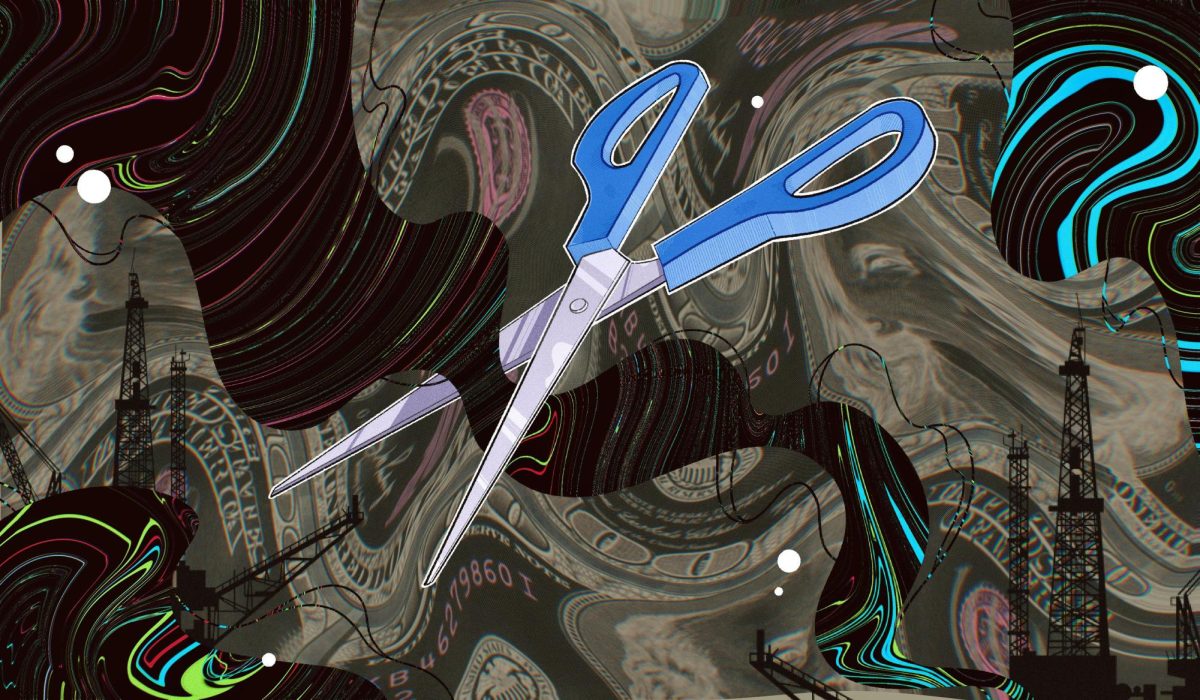Triton Cash Better Meets the Nutritional Needs of Students Without Feeding Into the Exploitable HDH System
With the holiday season in full swing, we have a lot to be thankful for. Dining Dollars is not one of them.
Presented almost as a “gift” to its students, Dining Dollars is advertised by UCSD Housing Dining Hospitality with the utmost enthusiasm. Within the finer print, however, we find that Dining Dollars have eyes bigger than their stomachs. According to HDH, “Dining Dollars expire at the end of summer, are non-refundable, non-transferable … and do not carry over to the next academic year.” Further, Dining Dollars “will not support three meals a day, seven days a week.” Not to mention less than 30 percent of UC San Diego’s own eateries accept this school-required currency.
Yet, we have an honest savior: Triton Cash. With over 60 locations, both on and off campus, there’s more to be merrier about. Off-campus vendors and even our own dining halls incentivize us to use Triton Cash, offering 10-20 percent discounts. Your Triton Cash balance will also roll over to subsequent years, and you can recharge them as much as you want, whenever you want. In every way, Triton Cash is far superior to Dining Dollars.
Now, the university and HDH may argue that it grants us Dining Dollars as a student failsafe. A means to make sure students have guaranteed money for food and for funding other HDH activities.
The Grinch’s excuse for stealing Cindy Lou Who’s Christmas tree is more palatable.
Dining Dollars is a worthless currency when compared to Triton Cash, which, shockingly, also keeps its students fed. If the university truly cared about student hunger and food insecurity, why not invest in an all-you-can-eat program, like the University of Massachusetts-Amherst and University of Virginia?
In reality, the university takes a page out of Geisel’s book with its own Dining Dollars ploy. Its heart is sizes too small when it comes to our food services program and has ulterior motives. Dining Dollars is a revenue source for HDH’s own workshop. It’s a sneaky expense wrapped up like a gift. And like Cindy-Lou Who’s Christmas tree, we already have a program that works glowingly. With more locations, superior discounts, greater freedom, less restrictions, transparent costs, and overall better bang for your buck, Triton Cash is what we should be thankful for this holiday season.
Thanks but no thanks, UCSD. You can keep your Dining Dollar “gift.” It’s not like we can return it anyways.
– GAVIN D’ELIA || Contributing Writer
Dining Dollars Ensure Students Have a Means of Accessing Food, While Also Covering Additional Costs of Housing
UCSD Housing Dining Hospitality operates as a zero-sum institution. This means it is entirely funded by housing and dining plan payments, and that all the proceeds go back into the HDH system. Comparing the prices of products on and off campus easily evidences the steep markup that HDH levies on its merchandise. While this seems capitalistic to some, the markup is intended to fund all the additional services provided by HDH. These services include, but are not limited to, heating and air, cleaning and maintenance, and Wi-Fi. Essentially, housing fees do not cover all the costs of housing, so mark ups at markets and dining halls diversify the additional costs along all HDH customers, students, or otherwise.
On-campus residents bemoan the purchase of Dining Dollars without considering what the system would look like without them. Removing the dining plan would compel disadvantaged students to choose between educational and living expenses and food. Dining Dollars require that students allocate funds toward food costs knowing that many would miss meals otherwise. Also, Dining Dollars can be paid in advance as part of a loan disbursement. While this increases loan amounts, it also ensures that students are able to eat while spreading out a year’s of food costs over the course of several years.
Removing Dining Dollars would severely cut the budget around which HDH operates. So, to maintain the housing and services they provide now, UCSD would either have to radically increase housing fees, or drastically increase prices across all HDH facilities. Most of the burden to compensate for this decrease in funds would then fall on on-campus students
Triton Cash has been offered as an alternative, but frankly it differs marginally from compelling students to pay for meals out-of-pocket. Triton Cash intends to be a means for parents and the administration to gift funds they know will go directly to food or educational expenses. This is why the administration provides a slight discount, to supplement existing funds. In a system without Dining Dollars, Triton Cash offers only nominal relief to an already harsh food insecurity problem.
– CHRISTOPHER ROBERTSON || Associate Opinion Editor








